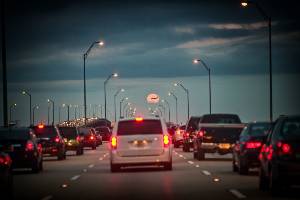 Tailgating other cars is a widespread problem on our nation’s roads. It often occurs because drivers are speeding, and they are angry that another car is in front of them forcing them to slow down. Tailgaters may even feel like they have a right to follow another car so closely because the other car should get out of the way.
Tailgating other cars is a widespread problem on our nation’s roads. It often occurs because drivers are speeding, and they are angry that another car is in front of them forcing them to slow down. Tailgaters may even feel like they have a right to follow another car so closely because the other car should get out of the way.
However, tailgaters often do not consider that the driver in the car in front of them may get angry about being followed so closely. In fact, sometimes drivers who are being tailgated get so angry they slam on the brakes, a practice called brake checking. Their goal is not to cause a crash, but simply to get the vehicle behind them to back away. Unfortunately, the following behind vehicle may not brake in time and a crash occurs.
While tailgating is a form of reckless driving, so is brake checking. This raises questions about fault for the crash and liability for damages. Is fault shared between both drivers? Can one driver bear most of the fault?
Below, we discuss brake-checking collisions and how liability may be assessed. If you were injured in a brake-checking crash, call TSR Injury Law today to discuss legal options. An initial consultation with a Bloomington car accident lawyer is free, and we do not charge upfront fees.
Defining Brake Checking
Brake checking is a type of aggressive driving that occurs when a driver suddenly hits the brakes to shock the driver following closely behind them. Brake checking is often a way for drivers to express road rage. They want to punish the driver behind them by scaring them and getting them to slow down and back off.
The lead driver usually does not want to cause a crash, but crashes often result from brake checking. The other driver is following so closely that it is difficult if not impossible to avoid a crash if the lead driver suddenly slams on the brakes.
There are times when one driver may brake check another to attempt to commit insurance fraud. The lead driver may cause a crash and file a claim against the other driver’s liability insurance. To avoid liability, the trailing driver would need to prove the lead driver did not have a valid reason for slamming on the brakes.
How Brake Checking Could Cause a Crash
Following another car too closely is dangerous because you leave yourself less time to react if the lead driver suddenly hits the brakes. Even if the lead driver is not brake checking you, there is a high likelihood of a crash because you are so close to the other vehicle.
The faster your car and the other car are traveling, the greater the likelihood of a crash because it takes longer to slow down and come to a complete stop.
Drivers may think they will be okay because they can keep their eyes on the car in front of them and be prepared to react if the lead driver slows down. However, this is a risky assumption, no matter how well you think you can drive.
While brake checking most often results in rear-end crashes, it is possible for brake checking to cause the rear driver to swerve out of the way and crash into another vehicle or even a fixed object (road sign, guardrail, tree, utility pole, etc.).
Who is at Fault for a Brake-Checking Collision?
Most of the time, one driver bears most of the fault for a crash. However, there are times when fault is shared between two or more drivers.
One of the challenges of assigning fault for a brake-checking crash is that both drivers were negligent. Tailgating is against the law, but so is hitting the brakes for no reason with the goal of scaring or intimidating the trailing driver.
Fault is going to be assigned based on the details of the crash. For example, your attorney is going to try to determine if the lead driver had a legitimate reason to hit the brakes. If there was no legitimate reason to hit the brakes, the lead driver may bear a significant percentage of fault.
The other issue that needs to be assessed is how close both vehicles were before the lead driver slammed on the brakes. If the rear driver was extremely close, he or she is probably going to be assigned a significant percentage of fault as well.
Under state law, you cannot follow another vehicle more closely than is reasonable and prudent. You are supposed to take note of the traffic around you, speed of other vehicles and road conditions when determining how closely to follow other vehicles. In other words, there may be times when you should stay farther behind other vehicles because there is heavy traffic or bad weather.
The law does not specify a safe following distance, but the general rule is three seconds. You should probably add another second or two in heavy traffic or bad weather.
Three seconds means you should be able to count to three between the time the lead vehicle passes an object and the time your car passes it.
Minnesota’s Comparative Negligence Law
Under state law, the victim can share fault for a crash and still recover compensation for damages. Your compensation award can be reduced by your percentage of fault. If you bear more fault than the other driver, you cannot recover any compensation for your damages.
Could the Brake-Checking Driver’s Insurance Company Deny Coverage?
Insurance companies often try to deny coverage by arguing the crash resulted from an intentional act. For example, the insurance company for the driver who engaged in brake checking may try to deny liability coverage. However, it may be difficult to prove the brake-checking driver intended to cause a crash.
The insurance company’s argument may not hold up in court. That is why it is important to be represented by an experienced attorney who can challenge the insurance company’s attempts to deny coverage.
At TSR, we are also prepared to take the case to court to pursue full compensation. We have a proven track record of securing compensation for crash victims, through settlements and courtroom verdicts.
Give TSR Injury Law a Call Today
Are you unsure if you need an attorney to help you recover full compensation after a crash?
You do not need to try to answer this question on your own. Give us a call to schedule your free legal consultation. This free meeting is a chance to learn about the benefits of hiring an attorney, and there is no obligation to hire our firm.
TSR Injury Law. No Upfront Fees. Call: (612) TSR-TIME.
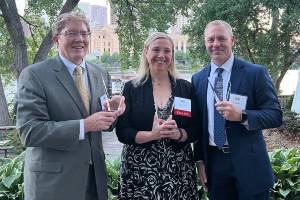 We are proud to announce firm partner Nate Bjerke (pictured on the far right) received the President’s Award for Outstanding Service from the Minnesota Chapter of the American Board of Trial Advocates (ABOTA) earlier this month.
We are proud to announce firm partner Nate Bjerke (pictured on the far right) received the President’s Award for Outstanding Service from the Minnesota Chapter of the American Board of Trial Advocates (ABOTA) earlier this month.

 There are many decisions injury victims make that they do not realize could hurt their claims for compensation. One such decision is refusing medical care, either at the scene or later during the treatment process.
There are many decisions injury victims make that they do not realize could hurt their claims for compensation. One such decision is refusing medical care, either at the scene or later during the treatment process.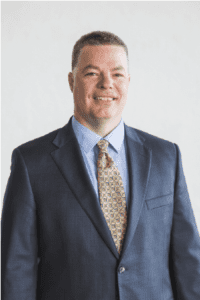 TSR Injury Law partner
TSR Injury Law partner  When a car insurance company makes a settlement offer, they may set a deadline for accepting it before it gets taken off the table. If they do not set a deadline, they may just expect a response in a reasonable amount of time.
When a car insurance company makes a settlement offer, they may set a deadline for accepting it before it gets taken off the table. If they do not set a deadline, they may just expect a response in a reasonable amount of time.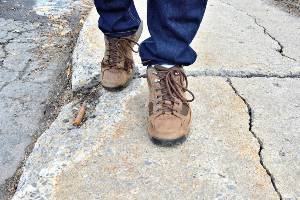 Ice and snow are not the only slip and fall risks in Minnesota. Cracked or uneven sidewalks are a trip and fall risk throughout the year.
Ice and snow are not the only slip and fall risks in Minnesota. Cracked or uneven sidewalks are a trip and fall risk throughout the year.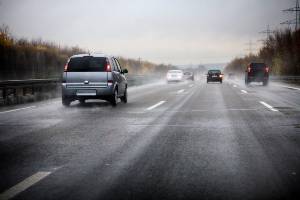 Summer not only brings warmer weather, but also rain. June, July and August average 10 or more rainfall days per year. That means there may be a greater risk of rain-related car crashes that could result in serious injuries or deaths.
Summer not only brings warmer weather, but also rain. June, July and August average 10 or more rainfall days per year. That means there may be a greater risk of rain-related car crashes that could result in serious injuries or deaths. Our firm is a proud sponsor of Minnesota Mothers Against Drunk Driving (Minnesota MADD), which works to support victims and advocate for stronger laws to prevent drunk or impaired driving.
Our firm is a proud sponsor of Minnesota Mothers Against Drunk Driving (Minnesota MADD), which works to support victims and advocate for stronger laws to prevent drunk or impaired driving. Tailgating other cars is a widespread problem on our nation’s roads. It often occurs because drivers are speeding, and they are angry that another car is in front of them forcing them to slow down. Tailgaters may even feel like they have a right to follow another car so closely because the other car should get out of the way.
Tailgating other cars is a widespread problem on our nation’s roads. It often occurs because drivers are speeding, and they are angry that another car is in front of them forcing them to slow down. Tailgaters may even feel like they have a right to follow another car so closely because the other car should get out of the way.